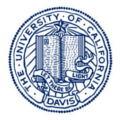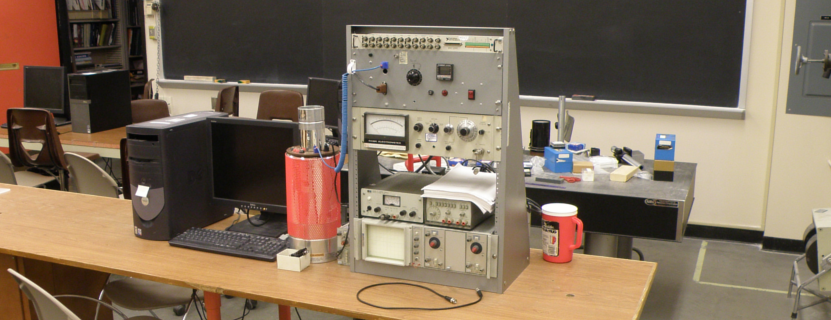Please use Canvas for the updated information including Syllabus. The aim of this course is to introduce you to the techniques of experimental physics. In this course you will learn how things work (electronics, detectors, and some optics), how to make measurements, solve problems encountered in experiments, how to analyze data, identify sources and nature of error and estimate their numerical significance on key findings of your experiments, and write up scientific articles on your experimental results. Like in real life experiments, you will need to find your way through unknowns and failures, these are not cook book type experiments. You will completely "own" your experiment, from design to construction to analysis to publication. Scientific writing is emphasized.
You will work in groups. However you will troubleshoot, record/analyze experimental set ups and data, and write lab reports by yourself. It is very important that you read the assigned and suggested reading BEFORE class. Full Pre-Lab reports are due on the first day of a lab. See the Canvas/Syllabus tab for up-to-date deadlines. You will not have time to come up to speed during lab class. Your first week is critical. You should gain sufficient working knowledge of data analysis, error estimation and least squares fitting methods so that you come into your nuclear decay experiment prepared. Specific pages of the text, Melissinos Experiments in Modern Physics. are uploaded but we suggest you get a copy; You will find the superb text by Barlow, Statistics, A Guide to the Use of Statistical Methods in the Physical Sciences a must reference.
A lab book with large gridded and numbered pages: similar to the Ampad #22-157, 9-1/4" x 11-3/4" is required. It is sometimes available in the campus bookstore [#074319221579], or better Amazon. Bring this to the first class.
We have created this website which describes the mandatory and elective labs for this class. PHY122A and PHY122B are the same course, same class. You are encouraged to explore the various pages for each experiment before the first class. Read the overview, experiment guides, related material etc, but do not expect the guides to be step by step, cook book manuals.
CRN: Students should inform Mendy Ha (menha@ucdavis.edu) in the Physics Office if they will require Phy 122. PTA's cannot be assigned without providing this information before Pass 1. The prerequisites will be strictly adhered to.
In the first week you will:
- Sign up for two elective experiments (1st, 2nd, 3rd, 4th choices) using the form.
- Review the lab on Data Analysis.
- Start your required experiment, Nuclear Decay.
- Read On Being a Scientist: Responsible Conduct in Research.
Be sure to complete assigned reading in advance of class.
Pre-Lab assignments must be handed in at the start of Lab.
Please find quarter-specific information in the Canvas course site.
Meeting Schedule
T R 2:10 PM - 6:00 PM.
Prerequisites
Physics 80, 104A, 105A, 110A, 110B, 115A, and 112. This course satisfies 4 units of the GE writing requirement.
Grading
Your letter grade will be based on a combination of "points" and your in-lab performance. The counting statistics experiment is worth 10 points, Quiz is 7 points, Pre-labs are worth 8 points, Lab book is 5 points, and each of the two elective experiments is worth 35 points. You will write two reports, one for each experiment. The first report will be graded twice, once for feedback on your writing and again once for your actual grade. Pre-Labs form an important component of your experiment grades, and are due at the beginning of class on the first day of starting a new experiment. No credit will be given for late Pre-Labs. Letter grade will also be based class performance including on-time submission of experiment Plans and draft report sections, teamwork, lab books, and demonstrated ability to problem-solve. You will not be penalized for not getting the correct answer, rather your grade will depend on how systematically you approach the tasks and solve the inevitable problems. Note that the goal of this course is not to teach you the right answer but to instruct you how you can figure out the answers. We are here to help and to guide you in this process. We will teach you problem-solving strategies, for instance, by asking questions rather than giving you the answer you might actually seek.











